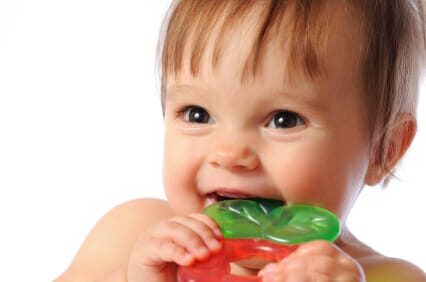FDA Issues Warning About Teething Necklaces, Bracelets After Death of 18-Month-Old

The U.S. Food and Drug Administration (FDA) has issued a warning discouraging the use of teething necklaces and bracelets. The warning follows the death of an 18-month-old child.
Details of the Teething Necklace and Bracelet Warning
According to USA Today, the FDA discourages the use of teething products to alleviate pain associated with tooth growth or to offer sensory stimulation to children with autism or attention-deficit/hyperactivity disorder.
This latest warning comes after a report of an 18-month-old child dying of strangulation by an amber teething necklace while taking a nap. Another incident, involving a 7-month-old that was hospitalized after choking on the beads of a wooden teething bracelet, was also considered.
In a statement released on Thursday, FDA Commissioner Dr. Scott Gottlieb said “We’re concerned about the risks we’ve observed with these products and want parents to be aware that teething jewelry puts children, including those with special needs, at risk of serious injury and death.”
What Are Safe Alternatives to Teething Necklaces and Bracelets?
Currently, the American Academy of Pediatrics advises parents use teething rings made of firm rubber to ease pain associated with teething. Parents can also gently rub or message the gums with one finger.
Parents are urged to avoid over-the-counter teething products containing benzocaine, including Orajel and Anbesol, as there is evidence linking the ingredient to a dangerous and potentially fatal blood condition.
Child Choking and Strangulation Statistics
The following statistics are provided by SafeKids USA:
- In 2013, 1,268 children under the age of 19 died from airway obstruction injuries and suffocation.
- Sadly, 77% of children who suffocated were under 12 months old and 60% were boys.
- 819 children under the age of 1 died from accidental suffocation and strangulation in bed and 155 died from choking on food or foreign objects.
- Cribs and playpens are responsible for 20% of all nursery product-related injuries among children ages 5 and under.
- An additional 24,000 children are treated in hospital emergency rooms for nonfatal suffocation or inhalation annually.
- Button batteries are particularly dangerous because when they gets stuck in a child’s throat, saliva triggers an electrical current
that causes a chemical reaction resulting in burns to the esophagus.
Contact an Experienced Child Injury Lawyer
If your child sustained a choking or strangulation injury due to someone else’s negligence or due to a defective or dangerous product, contact Thomas J. Henry. Thousands of children are injured each year after being choked or strangled by a defective product, unsafe toy, or due to the negligence of daycare or school staff. Let us help you and your child get justice and the compensation you deserve. Call our experienced child choking hazard attorneys today for a free case review.


